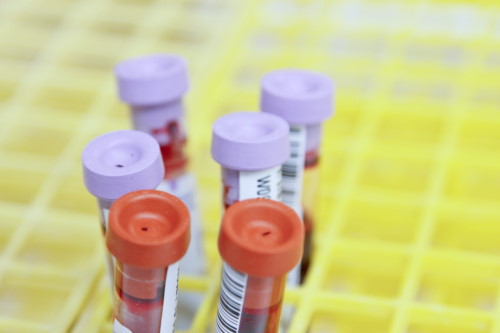Do you know your blood type? Don’t worry, there is a handful (more than half of all Americans!) who don’t know theirs either. While you get a B minus for not knowing, you could very well be one as well—a B negative blood type, that is!
Even if you’re squeamish about blood and/or needles, knowing your blood type can be important for many reasons, namely your health and the well-being of others.
BREAKING: Natural And Easy Way to Stop Diabetes
We spoke with Danielle Nance, MD, a hematologist at MD Anderson Cancer Center at Gateway Medical Center in Gilbert, AZ, to find out why it’s important to know. But first, she helps explain what determines one’s blood type.
What determines your blood type?
“Your blood type is determined by which types of sugars or antigens are decorating the surface of the red blood cell,” said Dr. Nance. “Those sugars are added on top of each other to make the different types.”
The antigens are determined from a combination of your parents’ genes.
Whether your blood type is A, B, AB or O depends on whether you have or don’t have certain antigens, A or B, on your red cells:
- All blood has a base of O antigen
- Type A blood has the A antigen on red cells
- Type B blood has B antigen on red cells
- Type AB blood has both A and B antigens on red cells
- O blood type has neither A nor B antigen on red cells
“O is the most common and basic blood type, followed by A, then B, and finally AB,” Dr. Nance said.
The Rhesus factor, or Rh “decoration,” is what is referred to as the positive or negative. Most Americans are Rh-positive. Those who are O negative are considered universal donors, meaning anyone can receive type O negative blood.
Why you should know your blood type
For medical reasons
The most important reason to know your blood type is in case of an emergency. If you are in a situation where you require a blood transfusion, you’ll need compatible blood. An incompatible blood group can cause blood cells to clump—which can be fatal.
“Knowing your blood type can also help predict the concentrations of certain proteins in the bloodstream, like von Willebrand disease,” Dr. Nance said.
To help others
One of the best, and most selfless, reasons to know your blood type is to help others through blood donations. Medical facilities are always in need of blood donations, whether you are O or A.
“All types of blood are needed because all types of people need blood,” Dr. Nance said. “Someone needs a blood transfusion every 2 seconds, according to the American Red Cross. Blood donations are especially important for people with Native American, Hispanic, African American and Asian heritage, because blood type in each race is slightly different.”
To plan a healthy pregnancy
Knowing your blood type can help predict some conditions that can occur during pregnancy, such as Rh incompatibility between mom and baby.
“Rh-negative women can become pregnant from an Rh-positive father,” Dr. Nance said. “When this happens, the mother can have an immune reaction to the fetus. This needs to be treated and monitored carefully during pregnancy.”
To lower your risk for certain health conditions
Most of the time, blood typing helps you safely donate and help others, but it can also let you know if you are at risk for certain health conditions in the future. Some studies suggest connections between certain blood types and the risk of blood clots and bleeding and kidney stones.
Your blood type is just one factor that contributes to your risk for certain health conditions. Make sure you see your physician for regular check-ups and maintain a healthy lifestyle.
Ways to find out your blood type
The easiest way to determine your blood type is to look at your birth certificate. But if you don’t have access to that information, you do have some other options.
TRENDING: Help Digestive System Perform Better With a Simple Formula
- Ask your doctor. They may have a record that includes your blood type.
- Donate blood. When you donate blood, it goes through several tests, including blood type. If you’ve donated in the past, you may be able to call and check. If not, the next time you donate blood, ask for a blood donor card, which will give you access to your blood type.
- Check during your next blood draw. The next time you have your blood drawn, ask to know your blood type. If you’ve had blood drawn there in the past, you can call the lab and see if they have the information.
- Purchase an at-home blood test. Some kits ask for a small amount of blood from a finger prick or saliva. However, these tests aren’t FDA-approved, which means they may not offer truly accurate results.








